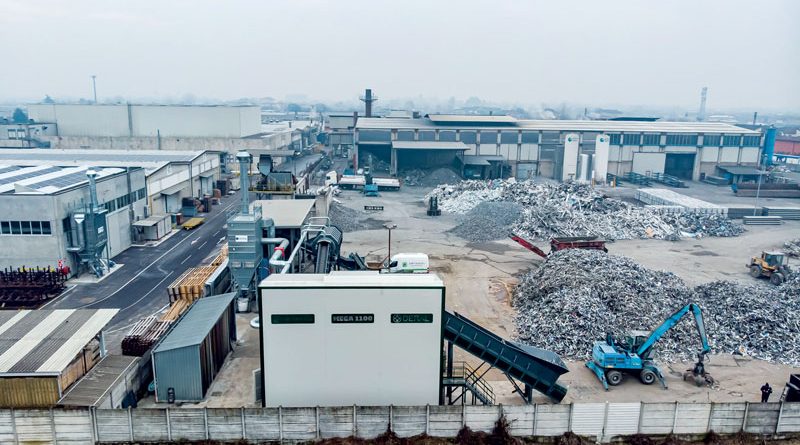From Scrap to “Ready to melt” Aluminium: new Aluminium Recycling Plant at Deral
With the start-up of the new Mega 1100 hammer mill supplied by Panizzolo Recycling Systems, the Estral Group foundry has increased its capacity for sorting and processing aluminium scrap to produce high quality, low carbon footprint extrusion billets. An interview with Mauro Cibaldi, Pietro Giulio Vincoli and Mauro Panizzolo
Starting from aluminium scrap, Deral Spa produces high quality billets for the national and international markets. To ensure high production quality, the material loaded into the furnaces must be carefully selected and treated for any impurities. For this reason, the company in Manerbio (near Brescia) has recently upgraded its grinding and selection line, an operation carried out in partnership with Panizzolo Recycling Systems, which has supplied a new Mega 1100 Hammer Mill. On the occasion of the start-up of the improved plant, we asked Mauro Cibaldi and Pietro Giulio Vincoli, respectively President and CEO of Deral, and Mauro Panizzolo, owner of Panizzolo Recycling Systems, for their impressions and comments.
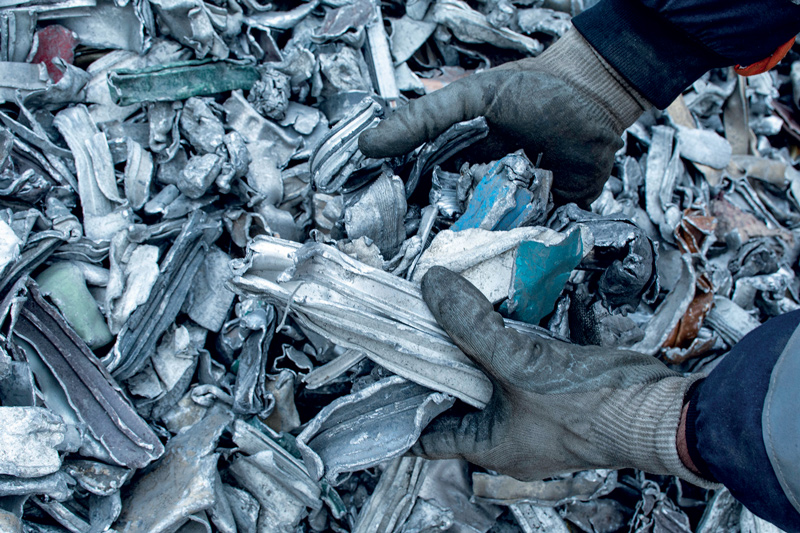
“Ready to melt” scrap aluminium treated with the new Mega 1100 plant 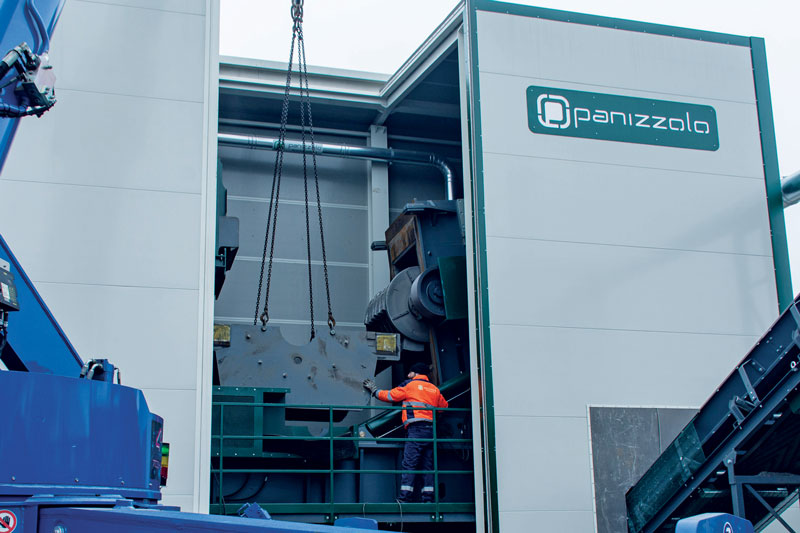
The patented interchangeable cradle of the mill allows an easy and fast maintenance of the heart of the plant
President Cibaldi, let’s start from the beginning: how was Deral born?
Cibaldi: “Deral was founded in 1986 in Manerbio, near Brescia, and initially dealt with scrap metal discarded from extrusion production cycles and used to produce new billets. Over the years, production evolution led us to expand the range of types of incoming scrap, and today we are able to include in the melting cycle aluminium parts and components at the end of their life cycle, such as materials from the demolition of aluminium window and door frames. This evolution has brought about a greater attention to the quality of recycling and the enhancement of the raw material from scrap. In 2015, this approach involved the replacement of the old scrap treatment line with an initial Flex 1000 Mobile Drum plant by Panizzolo, with an Eddy Current control system. Over the years, we then also included an x-ray selector, which allows us to effectively identify and separate secondary alloys from furnace-ready primary aluminium. At the moment, the staff consists of 35 operators in the factory and five employees in the administration, we take up an area of about 28,000 square meters of which 4,000 are dedicated to production in a covered shed and 600 square meters of office space. By 2030 we expect to be able to expand production with another furnace and a new line for billet casting. Regarding the flow we can say that we receive on average about 40-45,000 tons of materials per year subdivided into scrap, pure aluminium ingots and, to a lesser extent, alloying agents. The output is mainly in the form of aluminium billets and to a small extent a waste that is called “skimming”. However, all of our waste, the slag or those wastes resulting from the shredding system, are all conveyed to recovery with a positive economic value. We are therefore structured for a production of about 40-45.000 tons of finished product per year and we foresee, for the next ten years, a productive growth of the company also thanks to the new Mega 1100 and in view of a strongly expanding Italian and international market”.
There has been a lot of talk for some time about aluminium as a material for industrial renaissance. Can you give us some data on the structure of the foreign market?
Cibaldi: “Limiting ourselves to our old continent, Italy is in a leading position in Europe, along with Germany, for the production and use of aluminium and its alloys. Looking in particular at the extrusion sector, both in terms of production and quality, Deral is among the top five national foundries producing billets. The strong specialization in scrap recycling has allowed Italy to develop more than other European countries, where the choice of a few large foundries has been preferred. In this context Italy has a great productive and qualitative capacity, with an export trend growing every year. As far as the final purchasing area for our products is concerned, we can say that Germany stands out, especially in the automotive sector: many vehicles of German brands are manufactured with Made in Italy aluminium”.
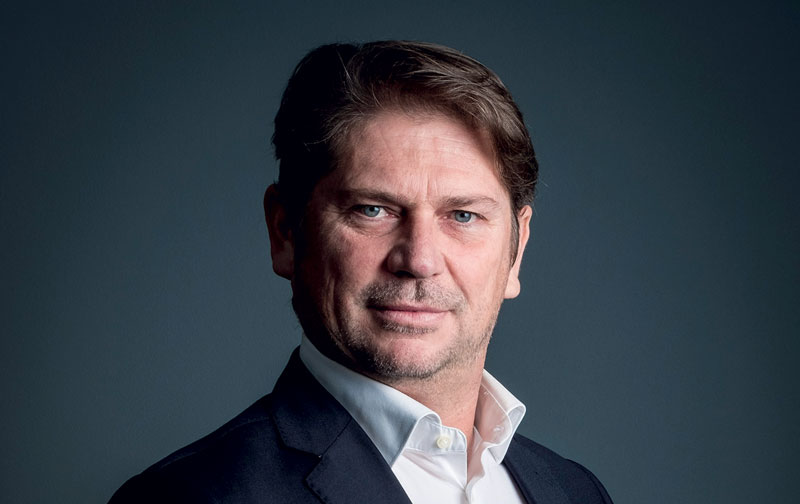
Mauro Panizzolo, owner of Panizzolo Recycling Systems 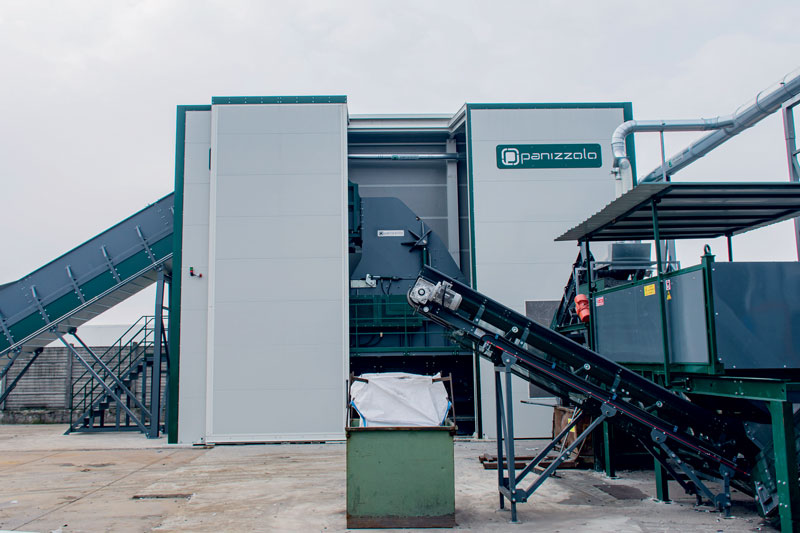
The new Panizzolo Mega 1100 mill at the end of the commissioning of the plant in Deral
Mr. Vincoli, what criteria led you to choose this type of plant and in what way does it make your treatment cycle more efficient?
Vincoli: “I visited an industry operator to see a Panizzolo recycling plant at work, configured on the electric motor crushing process. I immediately liked the basic idea: more compact mills, with a more than adequate investment and management cost, compared to a market which generally features large machines with significant costs. An example? The maintenance of a 100 kg hammer is not like that of a 22 kg one, but much more complex and expensive. At the beginning of our activity we used to work with shear presses and we manually carried out the selection and cleaning phases. In particular, our double shaft shredder produced a very large piece of aluminium (50-60 cm) and forced us to slow down production. Moreover, the quality of the product was not perfect, with clear repercussions at the time of casting. For this reason in recent years we have opted for complete and more efficient plants, such as the Panizzolo line, up to the new x-ray selection. One of the first Panizzolo machines installed, for reasons of timing, was the Flex 1000 Mobile Drum mill, started up in a very short time, with which we processed 10,000 tons of material for 3-4 years. We have now moved to a stationary Mega 1100 mill. Our first need was to increase the production capacity of the grinder and from the first accounts of the new production cycle we have already seen a marked improvement. With the grids set for our scrap, we calculated a productivity of about 15-16 tons/hour. A high level of control is important in a good machine. To support the operators, we want to add new technologies for monitoring production, so that the plant operates every day at its maximum potential. The new software, which operates following Industry 4.0 standards, will analyze all the machine’s operating data and provide us with the feedback we need to understand where we are going and how we can improve. From our point of view, finally, the plant stands out both for its size and for its simplicity and low management costs, avoiding the need for highly specialized or constantly present personnel. Following the simple routine maintenance, the mill does not cause any problem, with costs undoubtedly lower than the hydraulic double shaft shredders on the market. Obviously, there are other models on the market, but normally they are mills from 1,000 horsepower upwards, while we specifically needed a medium-sized mill, so much so that with the Flex 1000 Mobile Drum we were able to operate with a much less demanding plant and with a daily productivity, in two shifts, ranging from 100 to 150 tons of processed material”.
We would now like to ask the plant builder: what are Panizzolo Recycling Systems’ main strengths as a technology provider in the industry?
Panizzolo: “First of all, we have a long experience with grinding and hammer mills; over the years we carefully analyzed and verified their strengths and weaknesses, creating a class of products based on our direct experience and scalable according to the customer’s needs. In Deral’s case, for example, there are certainly other hammer mills of this size, but they are not up to the standard of processing required by Deral for its non-ferrous scrap. The constructive solutions of our product, in terms of carpentry and design, are objectively on very high standards and have also been appreciated in an international context of high quality such as that of railway supplies. This is further confirmed by the fact that our Flex 1000 Mobile, which has been used for some time now by Deral, did not show any problems at all, despite working for many years at a very intense production regime. I would also like to underline the importance of our patented interchangeable cradle for the operational reliability of the mill: it has a simple and effective engineering, which allows a really fast maintenance and it is exceptionally strong, especially in the side walls and in the underlying reinforcements, so much so that in Deral they are convinced that it will not be subject to wear for at least 10 years! Not only the extraction of the cradle, but also the extraction of the rotor itself is very practical. In a large mill, maintenance of the hammers would normally require a production downtime of at least a day, while on our machines it only takes a few hours, if you don’t have a spare rotor. I remember that in the Flex 1000 Mobile there were two rotors, so it could restart in less than half an hour. Finally, in terms of hourly productivity, the new plant will ensure a minimum output of 12 tons per hour, but already from recent processing tests at Deral we can speak of an average of 15-16 tons per hour”.
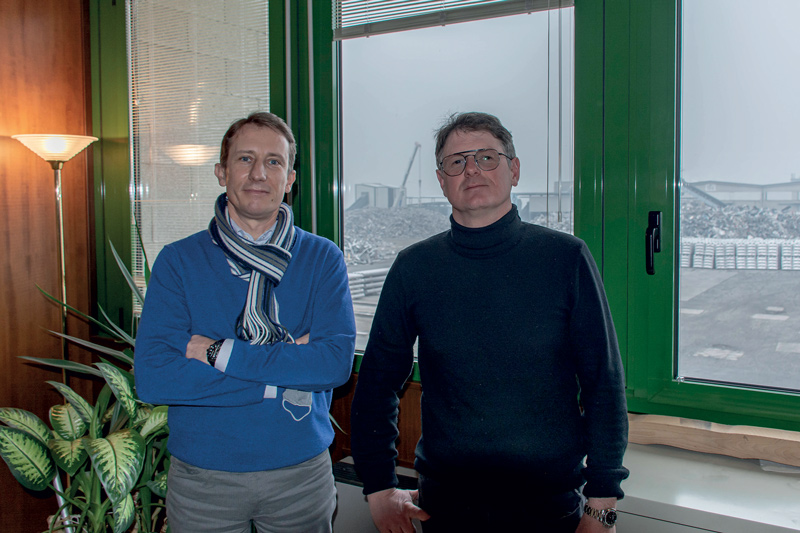
We would like to conclude this meeting with a general overview of Deral’s activities. How is your commercial presence distributed between Italy and abroad?
Cibaldi: “As far as input is concerned, we have to make two major distinctions. Scrap has an Italian prevalence, with less than 10% coming from abroad. On the contrary, pure aluminium ingots are all produced outside the EU. As for our sales process, 60% of our turnover is generated by our parent company Estral, which produces aluminium extrusions, while the remaining 40% is almost all destined for the Italian market, where about 45 extruders operate”.
What can you tell us about your environmental policy?
Cibaldi: “First of all, our company is ISO 9001 and ISO 14001 certified and we have the 333 Certificate dated 2011, which certifies the transformation of waste we purchase as ‘second raw material’. In addition, in December 2020 we also received the Environmental Assertion Validation Certificate, which confirms the high content of recycled material in our billet (>85%). Environmental sensitivity is in the DNA of our company and this leads us constantly to apply the ‘best available technologies’ to our furnaces, as well as to maximize the use of energy from renewable and natural sources. For example, before the new B.A.T. for the metallurgy sector became effective in June 2020, we had already installed a system of continuous monitoring of emissions.
On the energy side, together with our parent company, we have an energy manager with whom we plan the use of renewable energy. In addition, in 2020 our parent company completed a 1-megawatt photovoltaic system, so many machines can benefit from self-generated energy.”
What are your sources on market trends?
Cibaldi: “We are constantly active operators on the market, dialoguing with a great many subjects. This allows us to obtain news on the trends on a daily basis, together with traditional information channels such as trade publications. We are also part of the Centroal trade association, of which I am also the president, because we believe that associations help individual companies. If there are regulatory problems, which in some way can be challenging, going it alone doesn’t make sense”.
What is your opinion on changes in the industry over the next few years?
Vincoli: “Major changes are taking place in our industry. In the next 10-15 years there will be more and more structured companies, with complete plants performing internally the total enhancement of the material. In this process, the role of the simple scrap dealer will disappear. Therefore, in order to face the near future, companies must structure or de-structure themselves. An example? As a foundry, we collect demolition material or ready-made material; there is no longer any middle ground. In Deral, also driven by a growing global demand for aluminium and a very clear turn towards regulations aimed at reducing CO2, we are considering making another investment in the treatment plant. For this reason we think that the installation of the new Panizzolo mill has considerable chances of success for the treatment of aluminium and, as far as we are concerned, it is perfectly suited, in terms of size, to our production characteristics: it ensures low costs, allows to process both extruded profile and casing and also other types of aluminium scrap”.
Cibaldi: “Concluding with a look at the near future of the production segment, at the European and national level we see a whole series of incentives flourishing on products and materials which have a particular value for the circular economy. Among these materials, aluminium plays one of the most important roles. Aluminium is 100% recyclable, its recycling process requires only one twentieth of the energy which would be used starting from the ore and involves very little CO2 emissions during the melting process. It is being used more and more because of its lightness, strength, durability, workability, attitude to circular economy, all elements which explain why it is the champion material of the near future”.
